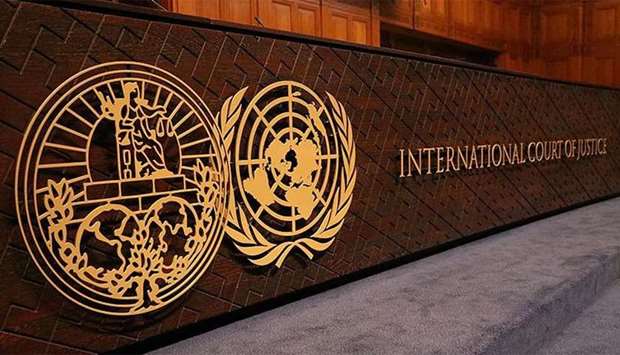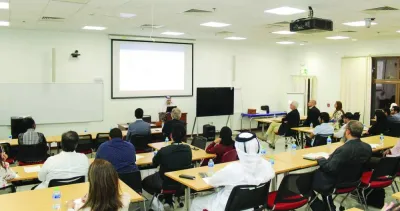Qatar will start onMonday its one-week pleadings before the International Court of Justice (ICJ) in the case against the United Arab Emirates related to the UAE's violation of the International Convention on the Elimination of All Forms of Racial Discrimination.
Qatar is officially represented before the court by a team of legal experts led by Dr Mohamed bin Abdulaziz al-Khulaifi, head of the legal team, and the Dean of the College of Law at Qatar University.
The Qatari pleading sessions come in response to the initial objections made by the UAE regarding the court's lack of jurisdiction to consider the Qatari request.
On April 29, 2019, the UAE raised initial objections claiming that the court has no jurisdiction in the case and that Qatar's request is unacceptable to consider its case and that the UAE has not violated its international obligations.
It should be noted that the case was filed by Qatar as a result of the discriminatory measures imposed by the UAE in June 2017 in a joint decision with the Kingdom of Saudi Arabia, the Kingdom of Bahrain and the Arab Republic of Egypt, and the four countries imposed an illegal land, sea and air blockade on the State of Qatar within the framework of a campaign of political and economic coercion.
On June 11, 2018, Qatar had filed a lawsuit against the UAE before the ICJ.
On the same day, Qatar also asked the court, as a matter of urgency, to indicate temporary measures to protect Qatar and Qatari citizens from the racial discrimination imposed by the UAE, specifically on families, students, and property owners in the UAE.
This is what prompted Qatar to initiate trial procedures because it firmly believes that violations of human rights arising from the behaviour of the UAE fall under the provisions of the International Convention against All Forms of Racial Discrimination.
On July 23, 2018, the ICJ issued an urgent ruling in favour of Qatar, approving several temporary measures requiring the UAE to guarantee family reunification for Qatari — Emirati families, the right to education, and access to courts.
On March 22, 2019, the UAE submitted a similar and urgent request for the court to approve a set of interim measures to preserve what it called its procedural rights until the court issues its final decision on the issue of the case.
On June 14, 2019, the court overwhelmingly rejected the UAE's request.
Furthermore, Qatar is also pursuing its complaint before the Committee on the Elimination of Racial Discrimination, in Geneva, against both Saudi Arabia and the UAE, which had been rejected on August 29, 2019, unanimously, the initial objections to its jurisdiction filed by Saudi Arabia and the UAE, and it formed two committees to look into the subject and examining all evidence in preparation for issuing their final report on the Qatari complaint.



